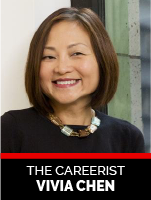How Fashionable Is Your Firm's Diversity Program?
Maybe it's flippant to equate diversity efforts with lipstick selection, but I think the analogy is apt.
November 01, 2019 at 02:00 PM
4 minute read
 (Photo: Shutterstock)
(Photo: Shutterstock)
Sometimes I feel like we're shopping for lipstick. Is this the season for blush pink, raging red or muted mauve? And what's the most alluring finish: high gloss or matte?
Maybe it's flippant to equate diversity efforts with lipstick selection, but I think the analogy is apt. Like many corporate endeavors, diversity is susceptible to fashion, always seeking the flavor du jour.
 What's trending is attacking diversity for the way it's defined and measured. Ironically, the subtext is that diversity has become exclusionary—that something is being left out.
What's trending is attacking diversity for the way it's defined and measured. Ironically, the subtext is that diversity has become exclusionary—that something is being left out.
One popular argument is that focusing on gender, race and ethnicity is superficial. Instead, as the thinking goes, we should look beyond appearances to the realm of ideas. The other criticism is that we're too obsessed with statistics and that the diversity problem goes much deeper than how many blacks or Latinx are partners at a law firm.
Both criticisms sound intriguing and appealing. But, oh, where are they leading us?
I've sounded the alarm before about putting ideas and thought into the diversity basket, but it seems to be gaining traction. The argument is this: How people think is far more important than their ethnicity, because it's ideas that promote creativity and change.
My colleague Paul Hodkinson, editor of The American Lawyer affiliate Legal Week, wrote that "though great progress may be made regarding race, gender and sexual orientation, law firms are seemingly blind to a variety of diversity issues."
And how many times have I heard that the minorities who fill the ranks in top colleges, law schools and major firms are, as the kids say, "bougie?"
The suggestion is that minorities who are part of rarefied institutions and professions such as the law aren't that different from the majority. Their social and economic statuses render them just another shade of white.
How ridiculous. And ignorant.
Though some minorities might come from middle- to upper-middle-class backgrounds (or appear to), I bet their looks affect how they're treated. They wear their ethnicity on their face, and the world responds to them accordingly.
Perhaps we shouldn't be so self-conscious, but as an Asian American, I assume people notice my difference. And there's no doubt that people project certain stereotypes about me from time to time.
What's pernicious about elevating idea and thought diversity at the expense of race and ethnicity is the underlying assumption that minorities are already integrated and that it's time to move on. I can't speak for all minorities, but I'd call that a white man's delusion.
As for the charge that law firms and corporations are too number-focused—interestingly, that often comes from women and minorities. They argue we're not addressing the systemic problems that hinder women and minorities in their careers. (I know I sound like a broken record, but remember women make up just over 20% of all equity partners in Big Law, while for blacks it's barely only 2%.)
Rather than that being so fixated on stats, the argument goes, we should be toppling existing mindsets by instituting unconscious bias training, rejiggering mentorship and sponsorship programs, and mandating open, honest discussions about sexism and racism.
Recently, Meghan Hottel-Cox, an associate at Goulston & Storrs, wrote on Law.com that "only by becoming aware, accepting and addressing our implicit biases can we start to counteract those biases and improve organizational cultures to value inclusivity and belonging."
I couldn't agree more. But that requires an exercise in soul-searching that I'm not convinced many lawyers will do. Some simply have no time for it; others just aren't interested.
The firms that invest in programs like bias analysis are not the ones with the worst track records. The best way to get the attention of firms that are truly lagging in diversity is to publish their crummy stats. The deep dives into culture, attitude and other intangibles can follow later.
I'm not buying all those new shades of diversity. I guess I'm just not fashion-forward.
Contact Vivia Chen at [email protected]. On Twitter: @lawcareerist.
This content has been archived. It is available through our partners, LexisNexis® and Bloomberg Law.
To view this content, please continue to their sites.
Not a Lexis Subscriber?
Subscribe Now
Not a Bloomberg Law Subscriber?
Subscribe Now
NOT FOR REPRINT
© 2025 ALM Global, LLC, All Rights Reserved. Request academic re-use from www.copyright.com. All other uses, submit a request to [email protected]. For more information visit Asset & Logo Licensing.
You Might Like
View All

Letter From London: 5 Predictions for Big Law in 2025, Plus 5 More Risky Ones
6 minute readTrending Stories
Who Got The Work
Michael G. Bongiorno, Andrew Scott Dulberg and Elizabeth E. Driscoll from Wilmer Cutler Pickering Hale and Dorr have stepped in to represent Symbotic Inc., an A.I.-enabled technology platform that focuses on increasing supply chain efficiency, and other defendants in a pending shareholder derivative lawsuit. The case, filed Oct. 2 in Massachusetts District Court by the Brown Law Firm on behalf of Stephen Austen, accuses certain officers and directors of misleading investors in regard to Symbotic's potential for margin growth by failing to disclose that the company was not equipped to timely deploy its systems or manage expenses through project delays. The case, assigned to U.S. District Judge Nathaniel M. Gorton, is 1:24-cv-12522, Austen v. Cohen et al.
Who Got The Work
Edmund Polubinski and Marie Killmond of Davis Polk & Wardwell have entered appearances for data platform software development company MongoDB and other defendants in a pending shareholder derivative lawsuit. The action, filed Oct. 7 in New York Southern District Court by the Brown Law Firm, accuses the company's directors and/or officers of falsely expressing confidence in the company’s restructuring of its sales incentive plan and downplaying the severity of decreases in its upfront commitments. The case is 1:24-cv-07594, Roy v. Ittycheria et al.
Who Got The Work
Amy O. Bruchs and Kurt F. Ellison of Michael Best & Friedrich have entered appearances for Epic Systems Corp. in a pending employment discrimination lawsuit. The suit was filed Sept. 7 in Wisconsin Western District Court by Levine Eisberner LLC and Siri & Glimstad on behalf of a project manager who claims that he was wrongfully terminated after applying for a religious exemption to the defendant's COVID-19 vaccine mandate. The case, assigned to U.S. Magistrate Judge Anita Marie Boor, is 3:24-cv-00630, Secker, Nathan v. Epic Systems Corporation.
Who Got The Work
David X. Sullivan, Thomas J. Finn and Gregory A. Hall from McCarter & English have entered appearances for Sunrun Installation Services in a pending civil rights lawsuit. The complaint was filed Sept. 4 in Connecticut District Court by attorney Robert M. Berke on behalf of former employee George Edward Steins, who was arrested and charged with employing an unregistered home improvement salesperson. The complaint alleges that had Sunrun informed the Connecticut Department of Consumer Protection that the plaintiff's employment had ended in 2017 and that he no longer held Sunrun's home improvement contractor license, he would not have been hit with charges, which were dismissed in May 2024. The case, assigned to U.S. District Judge Jeffrey A. Meyer, is 3:24-cv-01423, Steins v. Sunrun, Inc. et al.
Who Got The Work
Greenberg Traurig shareholder Joshua L. Raskin has entered an appearance for boohoo.com UK Ltd. in a pending patent infringement lawsuit. The suit, filed Sept. 3 in Texas Eastern District Court by Rozier Hardt McDonough on behalf of Alto Dynamics, asserts five patents related to an online shopping platform. The case, assigned to U.S. District Judge Rodney Gilstrap, is 2:24-cv-00719, Alto Dynamics, LLC v. boohoo.com UK Limited.
Featured Firms
Law Offices of Gary Martin Hays & Associates, P.C.
(470) 294-1674
Law Offices of Mark E. Salomone
(857) 444-6468
Smith & Hassler
(713) 739-1250











